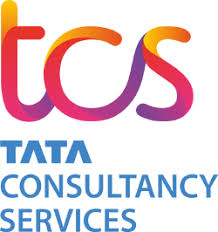Advancing autonomous driving with AI
%201%20(1).png)
Woven – Toyota's investment in the future of mobility — is partnering with Google to leverage vast amounts of data and AI to enable autonomous driving, supported by thousands of ML workloads on Google Cloud’s AI Hypercomputer. This has resulted in 50% total-cost-of-ownership savings to support automated driving.
.png)
15
AI use cases in
Automotive

%201%20(1).png)
Cox Automotive integrated Claude via Amazon Bedrock into its portfolio by first creating a sandbox environment to evaluate performance metrics and then selecting Claude 3.5 Sonnet for complex tasks and Claude 3.5 Haiku for high-volume content generation.
Here's what they did:
- automated personalized dealer-consumer communications
- generated engaging vehicle listing descriptions
- produced SEO-optimized blog posts, while also streamlining internal data governance through automated metadata generation
The integration optimized operational efficiency across marketing and internal data processes.
%20(1).png)

%201%20(1).png)
BMW Group implemented a cloud-based mobile data recorder (MDR) system by installing IoT devices in development cars to automatically capture and transmit extensive vehicular telemetry to Microsoft Azure. They built a comprehensive platform using Azure IoT Hub, Azure App Service, and Azure Kubernetes Service, and integrated Azure OpenAI Service with GPT-4o via Azure AI Foundry to create an MDR copilot that converts natural language queries into Kusto Query Language (KQL). This solution streamlined real-time data capture, analysis, and troubleshooting, accelerating vehicle prototyping and enhancing development quality.
%20(1).png)

%201%20(1).png)
Mercedes-Benz expanded its strategic partnership with Google Cloud to integrate an AI-driven conversational search capability into its MBUX Virtual Assistant. They implemented Google Cloud’s Automotive AI Agent built on Gemini on Vertex AI to access real-time navigation data from Google Maps Platform, enabling multi-turn, natural language dialogue and personalized recommendations that transform in-car navigation and user interaction.
151
companies using
Data Agents

%201%20(1).png)
wealthAPI implemented a next‐gen contract detection solution by integrating DataStax Astra DB on Google Cloud and leveraging Google Gemini models for AI‐powered analysis. They deployed DataStax’s vector search and real‐time insights capabilities to scale contract detection across millions of users in less than three months, streamlining wealth management workflows by dramatically reducing response times and efficiently handling massive data volumes.
%20(1).png)

%201%20(1).png)
Aura Intelligence integrated Anthropic's Claude via Amazon Bedrock into its data pipeline to automatically classify over 200 million job titles and industry pairings from multi-language data, replacing manual lookups and fuzzy matching. They fine-tuned foundation models on proprietary datasets and leveraged AWS infrastructure, including SageMaker and prompt management, to automate QA, report generation, anomaly detection, and real-time hiring trend analysis.
%20(1).png)

%201%20(1).png)
LaunchNotes leverages Claude in Amazon Bedrock in their product 'Graph' to transform engineering data into actionable insights. Graph functions as an ETL platform with Claude managing data pipelines, helping engineering managers understand development metrics, reduce incident identification time, automate updates, and generate customized release notes and technical documentation.
%20(1).png)
263
solutions powered by

%201%20(1).png)
TCS partnered with Google Cloud to integrate advanced AI and generative AI capabilities into retail service offerings. They launched the Google Cloud Gemini Experience Center at their Retail Innovation Lab in Chennai, enabling retail clients to ideate, prototype, and co-develop tailored AI solutions that optimize supply chain, warehouse receiving, customer insights, and content creation.
This approach automated processes using tools like Vertex AI Vision for warehouse receiving and leveraged Vertex AI with Gemini 1.5 Pro and speech-to-text to transform service centers.
%20(1).png)

%201%20(1).png)
Deutsche Bank developed DB Lumina, an AI-powered research agent built on Gemini and Vertex AI through a partnership with Google Cloud.
The solution automates the creation of financial research reports by rapidly condensing extensive market data—such as converting a 400-page report into a three-page summary—thereby streamlining analysis workflows while maintaining rigorous data privacy standards.
%20(1).png)

%201%20(1).png)
NVIDIA partnered with Google Cloud to enable on-premises agentic AI by integrating Google Gemini models with NVIDIA Blackwell platforms and Confidential Computing, ensuring data sovereignty and regulatory compliance for sensitive enterprise operations. The solution further optimizes AI inference and observability by deploying a GKE Inference Gateway alongside NVIDIA Triton Inference Server, NVIDIA NeMo Guardrails, and NVIDIA Dynamo to enhance secure routing and load balancing for enterprise workloads.
%20(1).png)
78
AI use cases in
Asia

%201%20(1).png)
TCS partnered with Google Cloud to integrate advanced AI and generative AI capabilities into retail service offerings. They launched the Google Cloud Gemini Experience Center at their Retail Innovation Lab in Chennai, enabling retail clients to ideate, prototype, and co-develop tailored AI solutions that optimize supply chain, warehouse receiving, customer insights, and content creation.
This approach automated processes using tools like Vertex AI Vision for warehouse receiving and leveraged Vertex AI with Gemini 1.5 Pro and speech-to-text to transform service centers.
%20(1).png)

%201%20(1).png)
LY Corporation leveraged OpenAI’s API to integrate advanced generative AI into its flagship services, including a GPT‑4o-powered LINE AI Assistant and GPT‑4 enhancements in Yahoo! JAPAN Search for summarizing reviews and generating travel plans. They also deployed SeekAI, an in-house productivity tool using RAG to rapidly retrieve information from internal documentation, streamlining employee inquiries and operations.
%20(1).png)

%201%20(1).png)
Physics Wallah developed 'Gyan Guru', a hyperpersonalized conversational study companion to address the unique academic and support needs of its 2 million daily users.
The system was implemented by indexing over one million Q&As and ten million solved doubts in a vector database, then leveraging a Retrieval-Augmented Generation (RAG) approach integrated with Azure OpenAI to deliver individualized, context-aware responses.
The integration streamlined things like
- various student interactions including academic queries
- product-related issues
- general support
The main benefit achieved was reducing reliance on human subject matter experts.
%20(1).png)
%201%20(1).png)
%202.png)

%202.png)
%201.png)
%201.png)
%20(1)%20(1).png)
.png)


.png)
.svg)


.png)


.png)








%201.png)